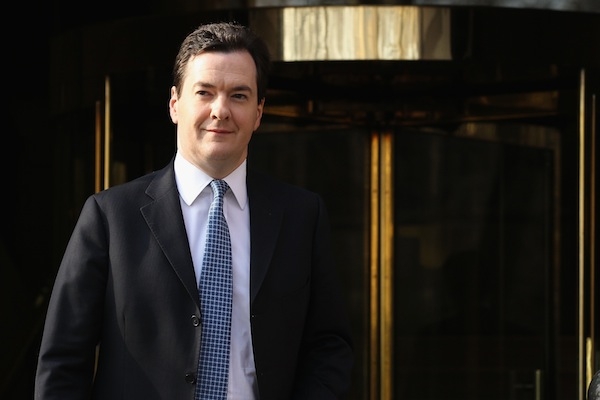George Osborne was relaxed as he gave evidence to the Leveson Inquiry. He was succinct and focused, in contrast to Gordon Brown in the morning session. He was affable, joking about his ‘difficulties in Corfu’ — a reference to the infamous Deripaska affair.
His confidence was such that he even said the inquiry was walking up a ‘blind alley’ in adjudicating on the fusion of news and comment in newspapers. This is not a new problem, he said, eighteenth century freesheets presented opinion as fact according to their view of the world.
Mr Osborne defended the conduct of Rupert Harrison, his special advisor, who was contacted by Fred Michel, a News International’s liaison officer, but did not act upon any of Mr Michel’s wishes, which included a request that Osborne write to Vince Cable, who was then overseeing the quasi-judicial process.
Lord Justice Leveson professed incredulity at the close relations between special advisors and industry representatives during a ‘judicial matter’. Osborne responded to that criticism by suggesting that this is the way Westminster operates, adding later that it was ‘not a bad technique’.
On the matter of Jeremy Hunt replacing Vince Cable after the latter’s comments about ‘declaring war’ on the Murdochs, Osborne recalls being called to a meeting in Number 10 where the issue was discussed. He was keen that Dr Cable remained in post as business secretary because he was concerned about the balance of the coalition.
According to Mr Osborne, the permanent secretary at Number 10, Sir Jeremy Heywood, then proposed moving responsibility for the bid to the Department of Culture, Media and Sport. This was the solution to which Mr Osborne was referring to in the text he sent to Jeremy Hunt later that day in which he said, ‘I hope you like the solution’.
In terms of Mr Osborne’s own views on the BskyB bid, he shocked Counsel to the Inquiry Robert Jay QC by saying that he viewed it solely as a ‘political inconvenience’ that would damage the Conservatives because friendly news groups would be disappointed whatever the outcome. Mr Osborne was asked for further explanation and he replied, ‘I didn’t have strong views on the merits or demerits of the merger… It was, as I’ve said, an inconvenience.’
The second session of questioning concerned the appointment of Andy Coulson, before moving on to the subject of future press regulation. Mr Osborne was adamant that he ‘did not hire’ Mr Coulson, but conceded that he was closely involved in his pursuit. Mr Osborne said that Mr Coulson gave him an explicit assurance during that time that there was nothing more to come from the phone hacking scandal.
Mr Osborne said that Mr Coulson had been sought because of his experience as editor of a major national newspaper, and because of his politics, which were not those of the Murdoch press in Britain at the time. Mr Osborne said, ‘He [Mr Coulson] struck me as someone who had Conservative views, who shared my Conservative values’.
Mr Osborne said that it was ‘not relevant that he [Mr Coulson] was an ex-News International employee.’ He went on to praise Mr Coulson’s efforts as the Conservative Communications Director, making particular reference to the ‘changed interaction with broadcasters’ that he oversaw. Mr Osborne said that broadcasters, not print organs, lead the news agenda in Britain. ‘The power of broadcasters is enormous,’ he said. ‘But it is power exercised with responsibility.’ He denied that the Conservatives close relations with News International executives swung the last election. He said, ‘If it was down to lunching with them [the Murdochs and their senior employees], I don’t think we would have beaten New Labour.’






Comments